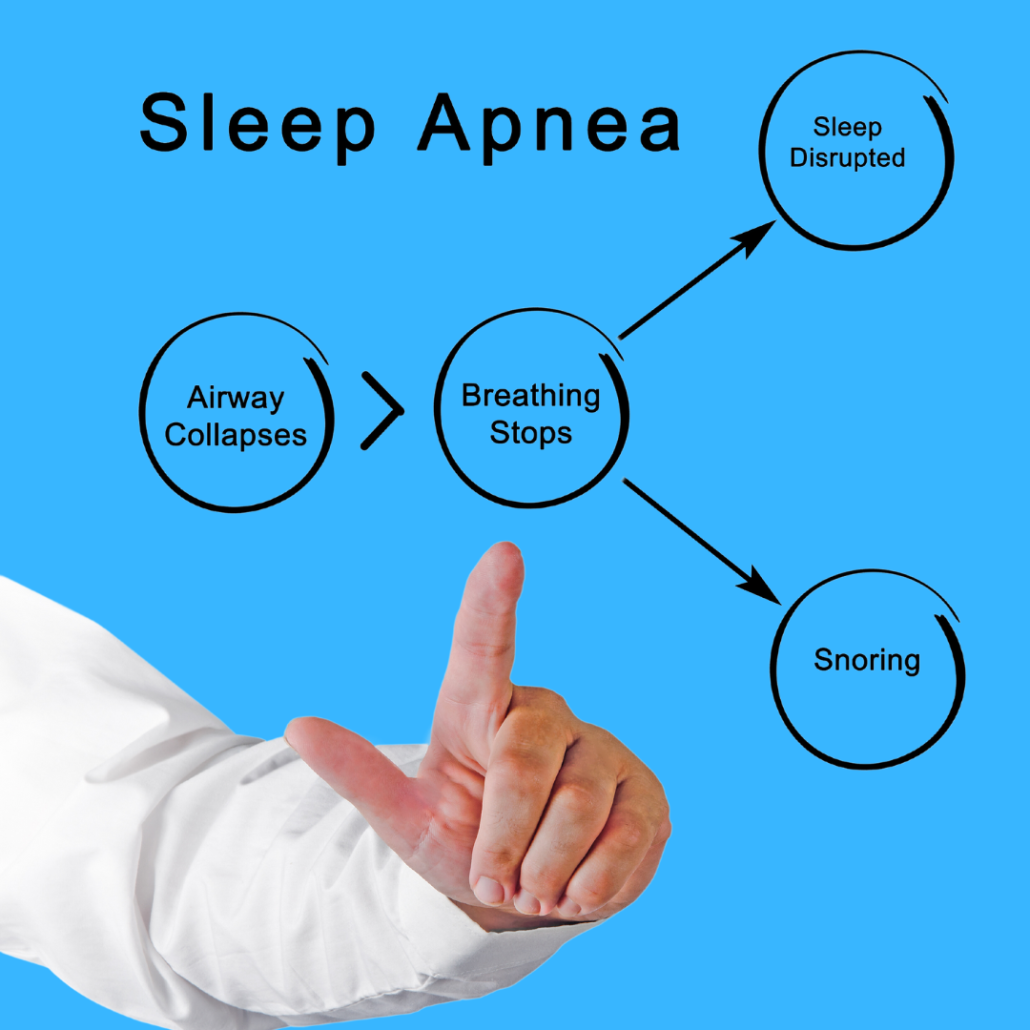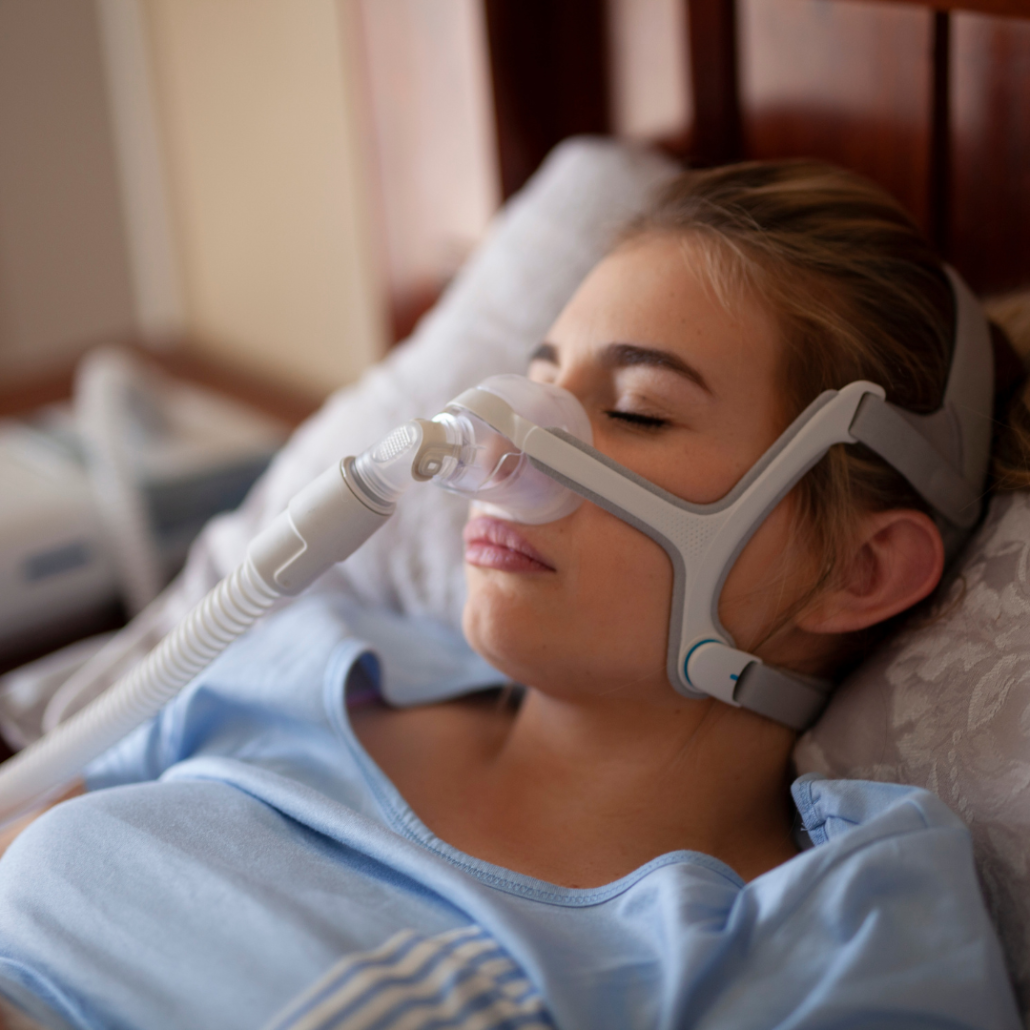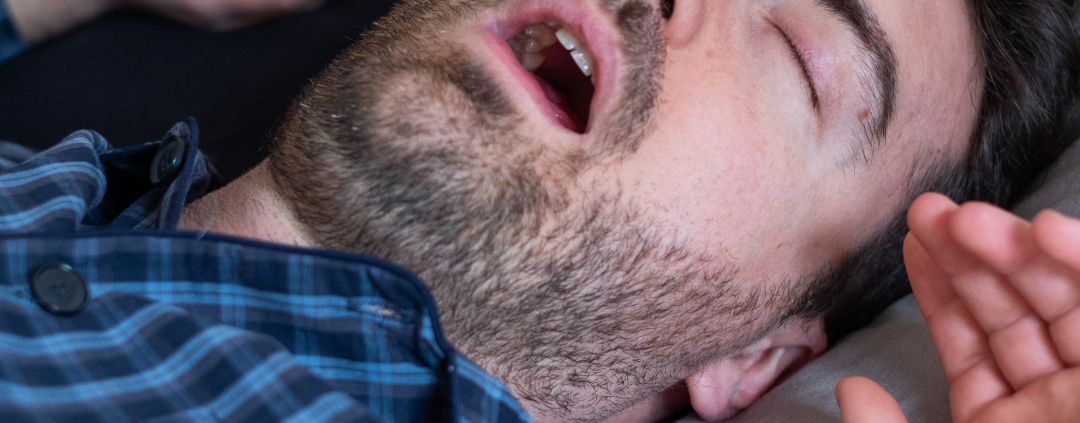Sleep Apnea: Causes & Treatment
Sleep is crucial to our health because it gives our bodies and minds the rest and renewal they require. However, a sleep problem called sleep apnea prevents millions of individuals from getting a decent night’s rest.
There’s a significant impact on a person’s health and quality of life if they have the critical condition of sleep apnea. Thus, we will examine the causes, signs, and treatments for this condition in this blog. Furthermore, we will also understand the significance of getting expert medical advice for people who are suffering due to this sleep problem.

What is Sleep Apnea?
A sleep disorder called sleep apnea is has major indications such as frequent breathing pauses while you’re asleep. These pauses, known as apneas, can last for a few seconds to minutes and might happen numerous times during the course of the night. This condition comes in three main varieties:
- Obstructive Sleep Apnea (OSA) is the most prevalent type of the condition, and it happens when the muscles in the throat relax, partially or completely blocking the airway.
- Central Sleep Apnea (CSA): In CSA, the brain fails to properly communicate with the breathing muscles.
- Obstructive and central sleep apnea are together in combination in complex or mixed sleep apnea.
Causes and Risk Factors
Although this condition can affect people of various ages, several variables may make the disorder more likely to occur. As a result, typical causes and risk elements include:
- Obesity: Carrying too much weight can cause the airway to constrict, which can cause obstructive sleep apnea.
- Age: Older persons are more likely to have this condition.
- Family History: Having a history of this condition in the family may make the condition more likely to occur.
- Gender: Men are more likely than women to develop this condition.
- Smoking and Drinking Too Much: Smoking and drinking too much alcohol both raise the risk of this condition.
- Medical Conditions: One can trace back this condition to a number of illnesses, including diabetes, hypertension, and persistent nasal congestion.

Symptoms
Sleep apnea symptoms can be mild and sometimes go unreported, delaying diagnosis and treatment. The condition’s symptoms frequently include:
- Frequent, loud snoring.
- Sleep-related instances of gasping or choking.
- Drowsiness and weariness during the day.
- Headaches in the morning.
- Concentration issues and memory issues.
- Mood swings, such as agitation and sadness.
- Repeated nighttime awakenings.
Health Implications of Untreated Sleep Apnea
If left untreated, this condition can have major negative effects on one’s health. The following are a few potential negative effects on health:
- Cardiovascular Problems: Hypertension, heart disease, stroke, and irregular heartbeats are all heightened risks of this condition.
- Diabetes: Sleep apnea and insulin resistance are related, which raises the risk of type 2 diabetes.
- Weight Gain: Sleep pattern disruptions can result in hormone imbalances, which may help explain why some people gain weight and become obese.
- Daytime drowsiness: This condition can cause persistent daytime drowsiness, which can lower productivity and raise the risk of accidents.
- Mental Health Problems: The treatment of this condition must happen as soon as possible or else it leads to mood problems including sadness and anxiety.
Diagnosing
It is critical to get a medical assessment and diagnosis if you believe that you or a loved one may have sleep apnea.
The most popular technique for diagnosing this condition is a sleep study, sometimes referred to as polysomnography. Additionally, while the subject is sleeping, the observation of a number of variables takes place, including breathing patterns, brain activity, heart rate, and oxygen levels.

Treatment Options
The good news is that sleep apnea is frequently successfully treated, which results in better sleep and general health. The type and severity of sleep apnea determine the best course of therapy. Typical forms of therapy include:
- Continuous positive airway pressure (CPAP) therapy includes using a mask that continuously pushes air into the airways to keep them open.
- BiPAP devices offer several pressure settings for breathing and exhalation, making them an excellent option for people who find CPAP unpleasant.
- Oral appliances: By adjusting how the jaw and tongue are positioned as you sleep, dental appliances can help keep your airway open.
- Lifestyle Adjustments: Weight loss, consistent exercise, and abstaining from alcohol and tobacco might lessen the symptoms of sleep apnea, particularly in situations when obesity is involved.
- Surgery: To clear airway blockages in severe cases of obstructive sleep apnea, surgical treatments may be advised.
A common sleep problem that affects millions of individuals worldwide is this rare condition. Effective management of this ailment depends on recognising the symptoms and requesting a medical assessment as soon as possible. Do not hesitate to contact a healthcare provider for a thorough evaluation if you believe that you or someone you know may have sleep apnea.
This condition may be successfully treated, resulting in greater sleep quality and improved overall health and well-being, with the correct diagnosis and treatment. Keep in mind that sleep is essential for leading a healthy and satisfying life.
















Leave a Reply
Want to join the discussion?Feel free to contribute!